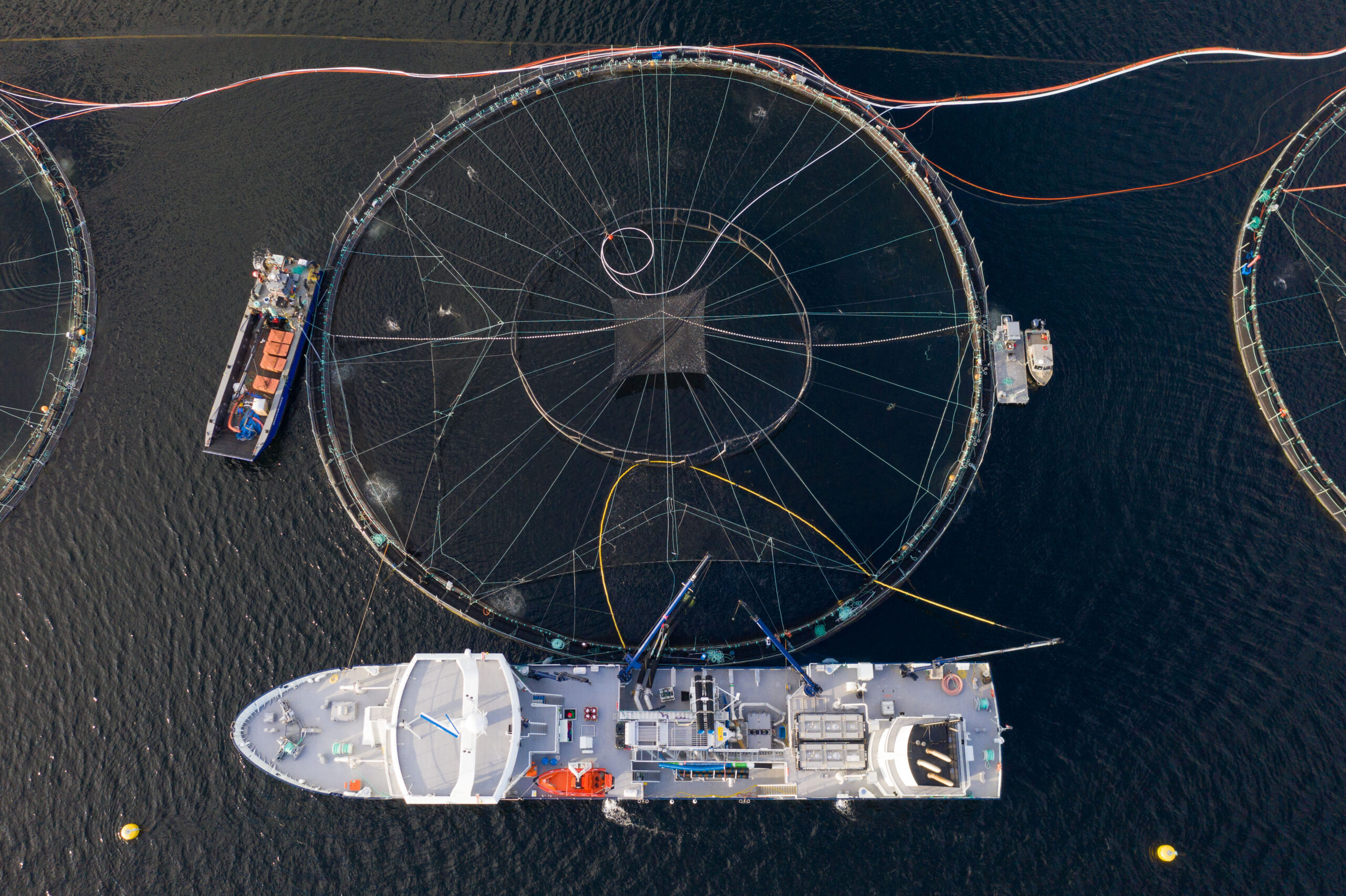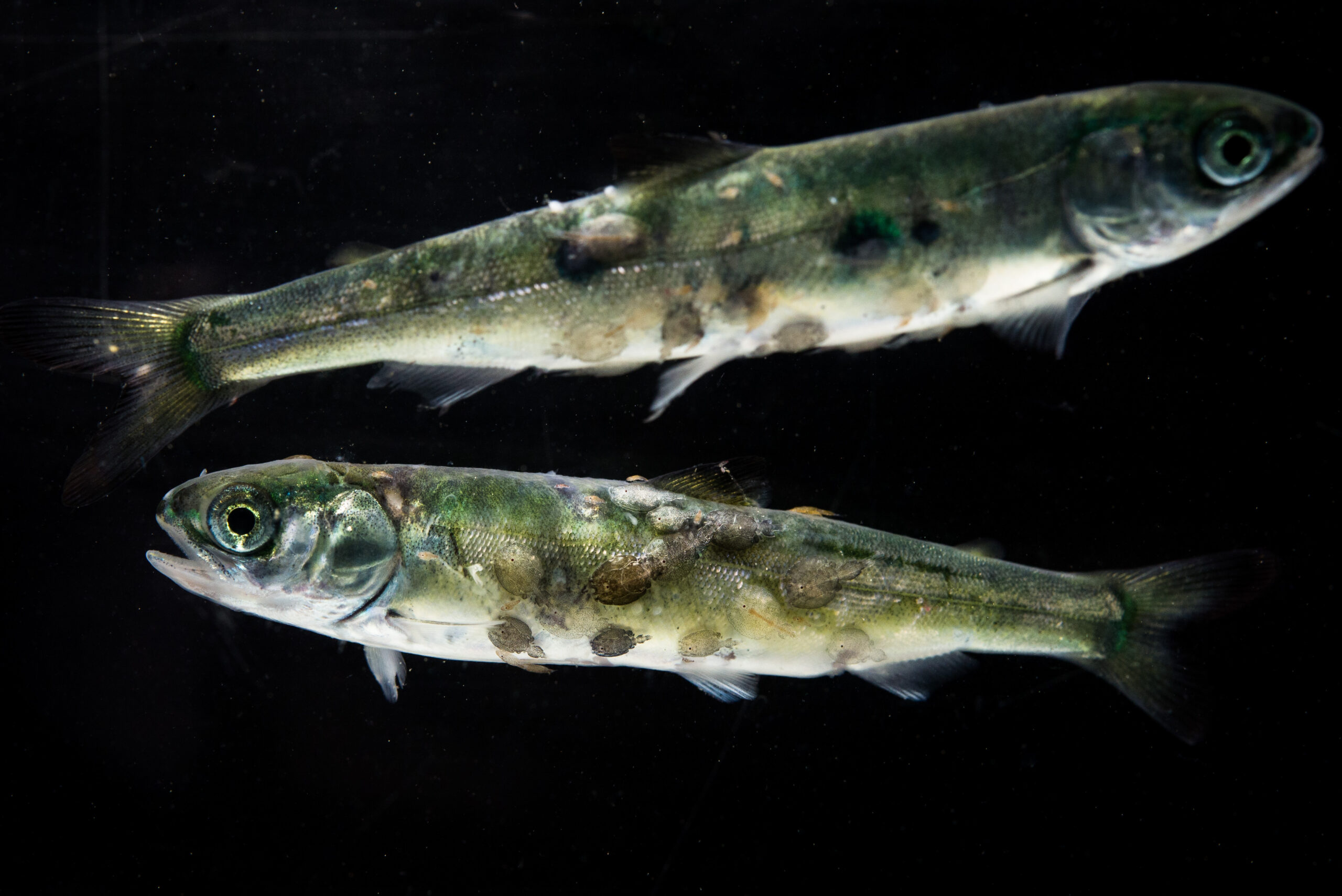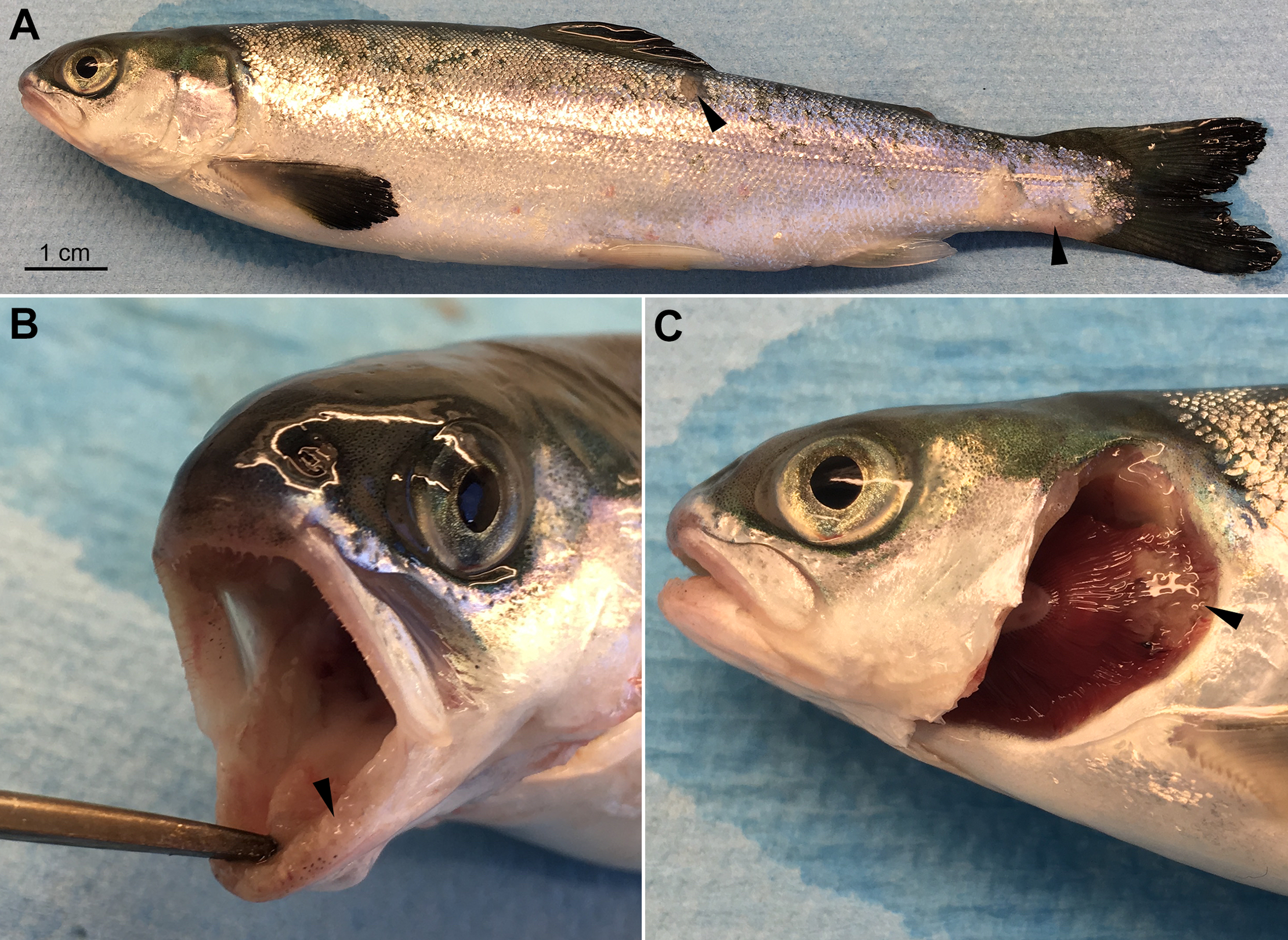
Why Ontario is experiencing more floods — and what we can do about it
How can we limit damage from disasters like the 2024 Toronto floods? In this explainer...
Norwegian salmon farming giant Grieg Seafood is planning to build a large new salmon farm on B.C.’s coast, in between two areas where fish farms are being phased out amidst concerns of disease transfer to dwindling wild salmon stocks.
The company’s application to regulators, submitted jointly with Tlowitsis First Nation, has angered other Kwakwaka’wakw Nations, who say they were not consulted and do not consent to a fish farm in disputed territory close to wild salmon migration routes, after years of “blood, sweat and tears” to phase out fish farms immediately to the north and south.
“It doesn’t make sense for us to be removing all these farms and then to be adding one more in a disputed area,” Ernest Alfred, elected councillor for ‘Namgis First Nation and a hereditary chief from the Tlowitsis, ‘Namgis and Mamalilikulla First Nations, told The Narwhal.
“We didn’t know that they were this far in the process. A lot of our chiefs weren’t even informed. There was a lot of shock when they sat down. There are a lot of angry people right now — and rightly so because we didn’t even know about it.”
Chief Alfred said hereditary chiefs from several Kwakwaka’wakw Nations are sending a letter to Liberal Party leader Justin Trudeau, stating that the rezoning application for the salmon farm near near Knight Inlet — between the Broughton Archipelago and the Discovery Islands where fish farms are being removed — infringes on reconciliation with Indigenous Peoples, the UN Declaration on the Rights of Indigenous Peoples and Aboriginal Rights and Title.
“We are vehemently opposed to any fish farms within Kwakwaka’wakw territorial waters, and they are contrary to our way of life, culture and potlatch laws,” the letter says. “As hereditary chiefs of our nations, we vow to protect our food and sacred Awinakola, the land, sea and air we own. As keepers and stewards of the land, we find this application outside your nation’s jurisdiction.”
The letter also says the proposed Atlantic salmon farm threatens oolichan runs of supreme importance to the nations. “Along with our oolichans, several other species are dependent on this area for survival and our food sovereignty,” says the letter, which includes a map with nearby prawn, salmon, crab and halibut fishing grounds, noting the region is also critical habitat for harbour porpoise, humpback and killer whales.
A development application to the Regional District of Mount Waddington, jointly submitted by Grieg Seafood and Tlowitsis First Nation, said the salmon farm will generate “economic returns” for the Tlowitsis. “The Tlowitsis Nation views this proposed farm as essential to their plans for economic benefits and generating revenue that will be used in the development of their new community, Nenagwas,” said the cover letter for the application.
Grieg and Tlowitsis First Nation are asking the district to add a new zoning category called a marine aquaculture zone, and to apply the new category to an 86-hectare marine area where the farm will be located, just east of Minstrel Island. Grieg has also applied to the federal government for an aquaculture licence.
The Tlowitsis left their main village, Kalagwees, on Turnour Island in the Johnstone Strait region of B.C.’s mid-coast, after the government closed the community’s only school in the 1960s. The nation recently purchased a parcel of land south of Campbell River for a new village that will be called Nenagwas, meaning “a place to call home.”
“We’re building a new community, which is going to need all the finances we can muster,” Chief Smith told an Aug. 30 public hearing, convened by the regional district over Zoom to discuss the application. “And the aquaculture community has been helping us in a large way.”
“One of the things we are concerned about is that there’s just going to be no more wild stock. I don’t think we should cut our nose off to spite our face and take away fish farms as well. That would just be ridiculous.”
Tlowitsis First Nation did not return an email and a phone call from The Narwhal. A joint statement with Grieg Seafood, emailed by the company, said the farm will complement Grieg’s three salmon farms in the nearby Clio Channel and support the nation’s goal of economic self-determination.
“Our Guardians are on the water monitoring the farm activities as well as our members employed by Grieg,” Chief Smith said in the statement. “We have taken a lot of time to learn about the industry and our partner before we decided to become involved more directly and for us, adding more farms in our territory is the clear way forward.”

At the two-hour hearing, Chief Alfred called the rezoning process “flawed” and “inappropriate,” noting the issue is one of Aboriginal Rights and Title.
“This is not what consultation looks like,” he told regional district representatives, who will make a decision about the application as early as September. “This does not look like consent to us … Ultimately, this can’t happen, and we won’t allow it.”
The chief reminded regional district representatives that he and others occupied a salmon farm at Swanson Island in the Broughton Archipelago for 284 days in an effort to remove fish farms from the area.
“And we’re prepared to do things like that. Because we want these farms out. I can’t stress more that we’ve done absolutely everything we can to close down these farms.”
A dispute about open-net pen salmon farming has simmered for decades in B.C., the world’s fourth largest producer of Atlantic salmon.
Wild salmon advocates, backed by scientific studies, say open-net pen farms spread disease and sea lice to wild populations — already stressed by climate change and habitat loss — and point to mass escapes of Atlantic salmon in Pacific waters, where it’s feared they could pass disease and parasites to native salmon.
They say the precautionary principle should be applied, which recognizes that conservation measures should be taken in the absence of scientific certainty when there is a risk of serious or irreversible harm to the environment, using the best information available.
The BC Salmon Farmers Association, representing some of the world’s largest salmon farming corporations, brandishes competing science reports, including from Fisheries and Oceans Canada, insisting that responsible open-net pen salmon farming does no harm.
The Trudeau government promised a transition away from open-net pen salmon farming by 2025, but it is still unclear how that will unfold.
Liberal incumbent Terry Beech, parliamentary secretary to the fisheries minister when the prime minister asked the governor general to dissolve Parliament and send Canadians to the polls for a Sept. 20 general election, told The Narwhal last year a transition does not mean B.C.’s open-net pen salmon farming industry will move en masse to land — even though a 2019 report from Fisheries and Oceans Canada concluded land-based salmon farming is ready for commercial development in B.C.
In December, the federal government announced a decision to phase out 19 open-net pen salmon farms in the Discovery Islands, a key migration route for wild salmon near Campbell River on the east coast of Vancouver Island, by June 2022.
The B.C. government had already announced 17 open-net pen farms in the Broughton Archipelago, to the north, would be phased out by 2023.
At the public hearing, ‘Namgis First Nation Chief Don Svanik said there is irrefutable evidence open-net pen fish farms are harmful to wild salmon and the environment.
“There’s nowhere on earth where they’ve been able to control sea lice,” he said. “There’s nowhere on earth where you can control disease … The open-net pen farms are a year-round host for sea lice and a year-round host for disease that would never be there in any other situation. We know that. So we need to move them onto land. There’s no alternative.”
Sea lice are a parasite that feed on fish, causing stress and damage to their immune systems and making them more vulnerable to disease. Wild juvenile salmon are especially susceptible as they migrate past fish farms, where sea lice are sometimes so problematic that companies bring in delousing ships to treat salmon with pesticides or pressure wash them.

Speaking at the hearing as an individual, Michelle Franze, communications manager for the BC Salmon Farmers Association, told regional district representatives that land-based salmon farming is “not going to be a feasible option.” An animated video, released by the association in October, says the technology does not exist to successfully replace all of B.C.’s open-net pen salmon farms with land-based operations.
Yet at least 75 land-based salmon farms are operating, planned or in construction around the world, including on the outskirts of Miami, Florida, where Atlantic Sapphire plans to harvest 220,000 tonnes of salmon yearly by 2030 — more than twice B.C.’s annual farmed salmon production.
In January, Grieg Seafood became the first global farmed salmon producer to invest in land-based salmon farming through a joint venture in southern Norway that will reduce the amount of time smolts spent in open-net pens and gradually produce fish to harvest size on land.
“[If] you want a fish farm, do it on land,” Chief Alfred said in an interview.
“I think if the regional district were smart, they wouldn’t want to pick this fight with seven First Nations. It’s not a good idea.”
The salmon farm rezoning and licence applications are also opposed by a coalition of environmental and wild salmon advocacy groups who have written to DFO expressing numerous concerns about the proposed 4,400-tonne grow-out operation.
The groups say numerous scientific studies show parasitic sea lice — as well as viral and bacterial pathogens such as piscine orthoreovirus (known as PRV) and Tenacibaculum maritimum, a mouth rot disease — are amplified by salmon farms and pose a significant risk to wild fish.

Stan Proboszcz, science advisor for Watershed Watch Salmon Society, one of the signatories to the letter, said in an interview that salmon farms can increase ambient levels of infectious pathogens for 30 kilometres.
The three Grieg Seafood salmon farms in Clio Channel, near Chatham Channel, were visited by delousing vessels for 70 days earlier this year, Proboszcz noted, explaining that this is unusual.
“It suggests there is some sort of serious problem here.”
Amy Jonsson, communications director for Grieg Seafood B.C., said in an email that warmer water and increased salinity created by hot, dry weather create ideal breeding conditions for lice, “who can quickly reproduce and thrive in these conditions.”
All three farms in Clio Channel currently have low numbers of sea lice due to “ongoing sampling, monitoring and when appropriate, treatment programs,” Jonsson said, pointing to the company’s publicly available sea lice reports.
Programs include the company’s Ronja Islander well boat for hydrogen peroxide treatments, as well as lice curtains, in-feed medication called SLICE and participation in a regional integrated pest management program, she said.
In an emailed response to questions, DFO said applications for new aquaculture facilities are assessed on an individual basis and “informed by departmental regulations, policy, science advice, fish health information, and consultations with First Nations, as well as other federal and provincial entities that may be involved.”
Asked when a decision will be made, the department said it has a 365-day “service standard” for processing new aquaculture applications. A public comment period for the application ends on Sept. 10.
Proboszcz said Grieg’s salmon farm application stands in contrast to the direction taken by other Pacific Northwest jurisdictions.
“Everyone in the Pacific Northwest is moving away from open-net pen salmon farms. Alaska, Washington State — Oregon does not have any — and there’s a ban in California.”
The regional district said it referred the development application and supporting information, as well as a draft of the proposed bylaw, to Kwakiutl First Nation, Mamalilikulla First Nation and Nanwakolas Council for review and input.
Get the inside scoop on The Narwhal’s environment and climate reporting by signing up for our free newsletter. On a warm September evening nearly 15...
Continue reading
How can we limit damage from disasters like the 2024 Toronto floods? In this explainer...

From disappearing ice roads to reappearing buffalo, our stories explained the wonder and challenges of...

Sitting at the crossroads of journalism and code, we’ve found our perfect match: someone who...
